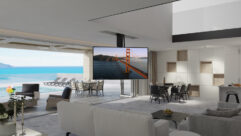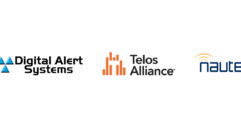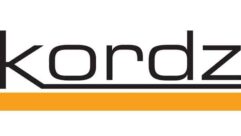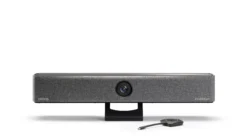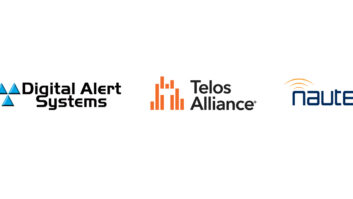
The Buzz: Installation Spotlight: CCS Presentation Systems, Scottsdale, Ariz
Sep 1, 2007 12:00 PM,
By Jessaca Gutierrez

As more educators throw their chalk in the trash and join the AV revolution for classroom presentations, the issue of training those educators to use increasingly complex multimedia tools presents itself. Getting teachers up to speed with these tools has become a bit of a quandary in many educational facilities. Even the training that is available does not begin to fully address these issues. Frequently, the training takes place off-site, in faraway cities, or when school is in session and travel is complicated, to say the least.

AV integrator and training house CCS Presentations Systems designed and outfitted a 44ft.-long, 12ft.-tall racecar hauler to act as a modern mobile classroom and training facility for schools in Arizona.
CCS Presentation Systems may hold the solution. CCS is not only an AV integration company, but it also operates training centers across the nation. It’s particularly known for its state-of-the-art training center in Scottsdale, Ariz., where the company trains more than 2,000 educators each year. To better serve clients who can’t make it to one of the centers, however, the company recently developed a mobile center that travels directly to schools in Arizona. With this approach, the company says it hopes to reach out and train 4,000 more educators in the state, as well as make this technology available to students of technology-deprived districts by acting as a mobile classroom.
A little more than six months ago, CCS conceptualized the mobile center. What it pictured resembled a modern-day classroom, outfitted with virtually every AV component available today. Using an empty 44ft.-long, 12ft.-tall racecar hauler — which was chosen instead of an RV because it wouldn’t be as easy for a thief to drive away with — CCS designed the inside and then recruited RV Interiors, a Gilbert, Ariz.-based company that retrofits RVs and other commercial vehicles, to modify the hauler with walls, insulation, a dropdown ceiling, and a desk specially designed by CSS. These modifications allowed CCS to equip the center with an audio system from Audio Enhancement (the Integrator system), an interactive front-projection Smart Board, and a 12-seat computer lab running dual-platform MacBook laptops.
Among the other technology installed in the mobile center is a Smart Technologies AirLiner wireless slate, a battery-free untethered pen that allows users to interact wirelessly with a Smart Board from 52ft. away, and an eInstruction classroom performance system, an audience-response technology that allows teachers to interact with a computer program through infrared response pads. Armed with a personal computer and a projector, teachers can draft questions that can be beamed onto a screen and then answered by students using pads at their desks. The mobile center also features a Samsung Digital Presenter, a document camera that allows teachers to show 3D objects, text from a book, or any printed material to a whole audience on a screen; a Da-Lite Screen Company Equipment Rack Cart; and an AMX Modero control touchpanel to manage all these individual AV components, as well as the lights, drapes, and room temperature.
The entire installation took a little longer than expected due to problems with the air conditioning unit and getting the built-in desks and the presenter platform to spec. Otherwise, getting the center on the road was essentially hurdle free. Currently, with one mobile center, the center will go to a central location within an area and then build a schedule to suit the needs of the schools in that area.
The mobile unit not only functions as a classroom and training center, but it also serves as a mobile showcase room where school decision makers can peruse some of the latest technology available in the educational market and figure out the benefits of installing that technology in their own classrooms.
“Big school districts who want to do a rollout of technology use it for board meetings to show board members what they are talking about when they talk about interactive whiteboards and mounted projectors, and it’s sort of designed to replicate what an integrated room would be. It gives them a much [clearer] idea of what it is that they’ll be investing in,” says Julie Solomon, training manager for CCS Presentation Systems.
Although the mobile center had only serviced two schools in Arizona at press time, it was well received by educators at those schools, and CCS officials expect to expand their use of the center soon.
“The possibility of having something that would come to you is very exciting to people — especially in education because they not only have to be out of the classroom, but schools have to pay for substitutes,” Solomon says. “So what we can do for education is pull up to the building and then, whenever teachers have a free period that day, they can come in and do a training session for half an hour, 45 minutes, and then go back to their classrooms without the time away from school or the travel time.”
The mobile center is a model for a future fleet of mobile centers the company says it plans to create and scatter throughout Arizona. CCS also has an initiative underway to replicate the project in other states where the company has a presence.
“Within the next five or 10 years, it’s going to be that almost every classroom in the United States will have interactive technology with projection systems, the ability to control things, use multimedia to engage,” Solomon says. “We just want to be a facility that is available to see what that is now, and to teach how to use everything that may be placed in the classroom.”
But the opportunities for the mobile center don’t end with the education market. Other companies and even government entities can also book and use the facility to train their employees on the latest AV technology as it makes its way into those workplaces.



